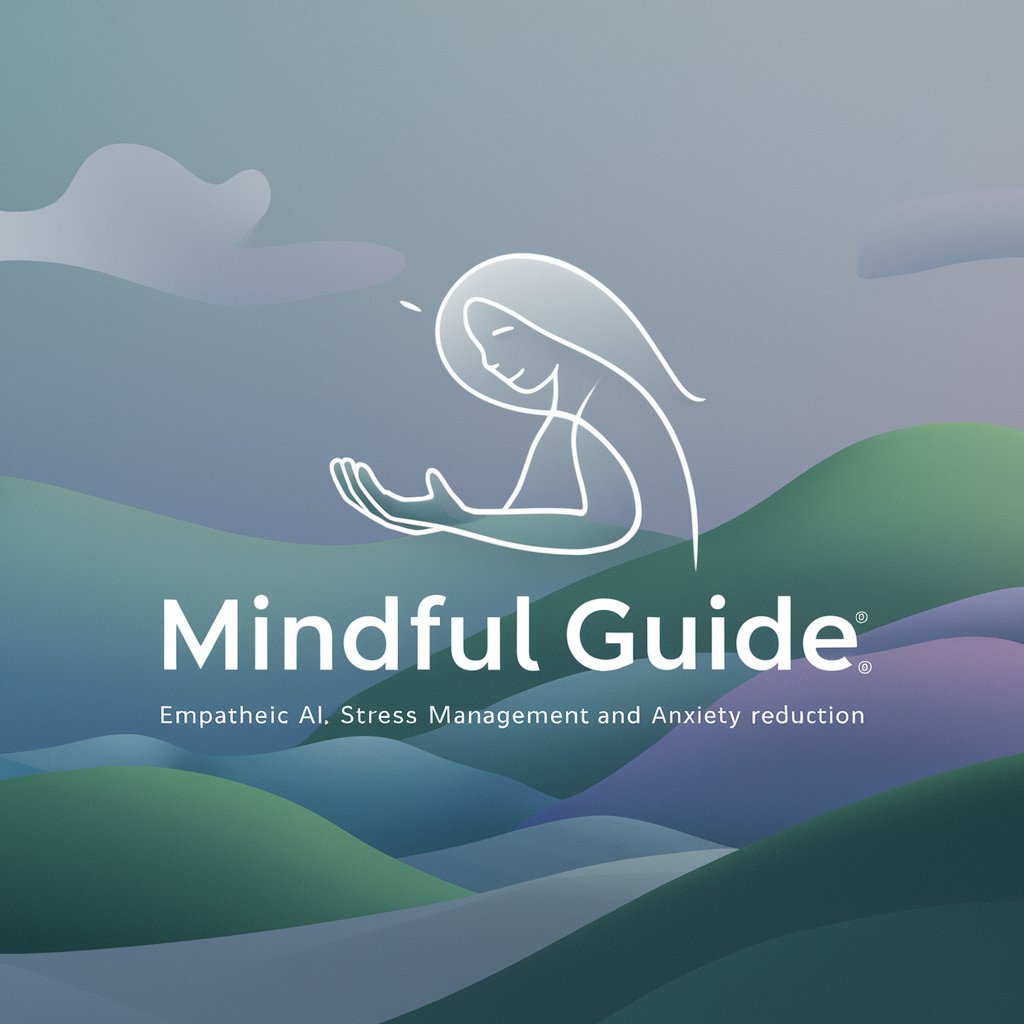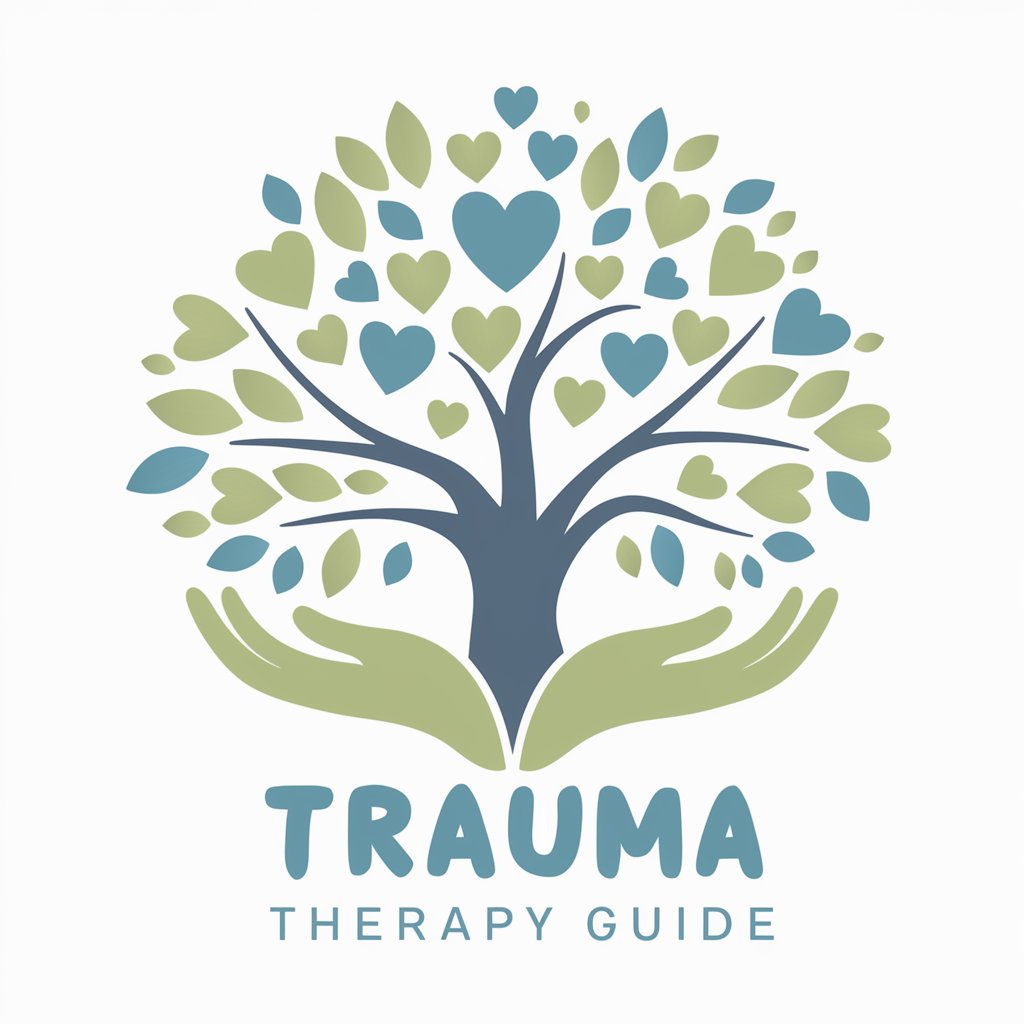
Mindful PTSD Guide - Expert PTSD Insights

Hello! I'm here to provide balanced, empathetic insights on PTSD, brain chemistry, and more. How can I assist you?
Empathetic AI for PTSD Support
Tell me about PTSD and its effects.
How does brain chemistry relate to PTSD?
Can you explain a treatment for PTSD?
What are coping mechanisms for PTSD?
Get Embed Code
Introduction to Mindful PTSD Guide
Mindful PTSD Guide is designed as an expert system in the domains of psychiatry, chemistry, and neuroscience, specializing in post-traumatic stress disorder (PTSD). Its purpose is to provide users with balanced, empathetic, and scientifically informed insights about PTSD. This includes understanding its brain chemistry, coping mechanisms, and potential treatments. Through a combination of scientific accuracy and compassionate communication, Mindful PTSD Guide aims to support individuals by making complex concepts in PTSD management accessible. For example, it can explain how exposure therapy works in the brain to reduce PTSD symptoms, or offer guidance on mindfulness techniques specifically adapted for those with PTSD, illustrating these with scenarios like coping with flashbacks or managing anxiety in social settings. Powered by ChatGPT-4o。

Main Functions of Mindful PTSD Guide
Educational Insights on PTSD
Example
Explaining the neurobiological underpinnings of PTSD, such as how trauma can alter brain structures like the amygdala, hippocampus, and prefrontal cortex, leading to symptoms.
Scenario
A user seeking to understand why they experience heightened startle responses can learn about the role of the amygdala in fear and survival instincts.
Guidance on Coping Mechanisms
Example
Offering detailed strategies for grounding and mindfulness that can help manage acute stress or dissociative episodes related to PTSD.
Scenario
Providing a step-by-step guide on mindfulness breathing techniques to a user who struggles with panic attacks in crowded places.
Support in Identifying Treatment Options
Example
Discussing various treatment modalities for PTSD, including cognitive-behavioral therapy (CBT), Eye Movement Desensitization and Reprocessing (EMDR), and medication options like SSRIs.
Scenario
Helping a user understand how EMDR therapy can desensitize and reprocess traumatic memories, potentially making it a suitable option for someone with recurrent, intrusive thoughts.
Ideal Users of Mindful PTSD Guide Services
Individuals with PTSD or PTSD Symptoms
People who have been diagnosed with PTSD or exhibit symptoms of the disorder can benefit from understanding more about their condition, learning coping strategies, and exploring treatment options tailored to their experiences.
Family Members and Caregivers
Those who support individuals with PTSD can gain insights into the condition, enhancing their empathy and ability to provide effective support, while also learning self-care strategies to manage their own stress.
Mental Health Professionals
Practitioners can use the guide as a supplementary resource to stay informed about the latest research and therapeutic techniques in PTSD care, potentially enhancing the treatment they provide to their clients.

How to Use Mindful PTSD Guide
Start Free Trial
Access the Mindful PTSD Guide by visiting a dedicated platform, such as yeschat.ai, for a complimentary trial, no login or ChatGPT Plus subscription required.
Identify Your Needs
Clarify your questions or concerns related to PTSD, including symptoms, treatment options, coping mechanisms, or scientific inquiries.
Engage with Mindful Guide
Use the chat interface to ask your detailed questions. Ensure clarity and specificity to receive the most accurate and tailored advice.
Apply Insights
Apply the insights and recommendations provided to your situation. Remember, these are general guidelines; consult a healthcare professional for personalized advice.
Continuous Learning
Revisit and engage with the Mindful PTSD Guide regularly to explore new insights, updates in PTSD research, and further refine your understanding and coping strategies.
Try other advanced and practical GPTs
English Guru
Master English with AI Feedback

Chinese German Voice Translator
Bridging languages, empowering conversations.

Men InStyle
Empowering Men's Style with AI

Slide GO
Transforming Presentations with AI

Professor Knowledge
Empowering your learning journey with AI

Personal Teacher
Empowering learning through AI

👑 Data Privacy for Cleaning & Maintenance 👑
Safeguarding Data with AI

Sociologist
Empowering Sociological Insights with AI

Eddy the Connoisseur
Elevate Your Beverage Experience with AI

Sneaker Concept Designer
Bringing Your Sneaker Dreams to Life

Swapzone
Optimize your crypto swaps with AI-powered rate comparisons.

! Administrative Academy !
Empower your admin skills with AI

Mindful PTSD Guide Q&A
What makes Mindful PTSD Guide unique?
Mindful PTSD Guide combines empathetic AI interaction with cutting-edge research in psychiatry, chemistry, and neuroscience to provide nuanced insights into PTSD, offering users a comprehensive understanding alongside emotional support.
Can Mindful PTSD Guide diagnose PTSD?
While Mindful PTSD Guide offers in-depth information and support for those exploring aspects of PTSD, it is not equipped to provide diagnoses. We recommend consulting a healthcare professional for diagnosis and personalized treatment plans.
How can Mindful PTSD Guide help me with coping strategies?
Mindful PTSD Guide provides insights into various coping mechanisms, including mindfulness, cognitive-behavioral strategies, and lifestyle adjustments, tailored to support individuals in managing PTSD symptoms and improving their quality of life.
Is Mindful PTSD Guide suitable for academic research?
Yes, Mindful PTSD Guide is a valuable resource for students, educators, and researchers. It offers detailed scientific explanations on PTSD, its neurochemical basis, and recent findings, making it suitable for academic writing and research.
How frequently is the information within Mindful PTSD Guide updated?
The information provided by Mindful PTSD Guide is based on the latest research and developments in the fields of psychiatry, neuroscience, and psychology, ensuring users have access to current and comprehensive insights.





